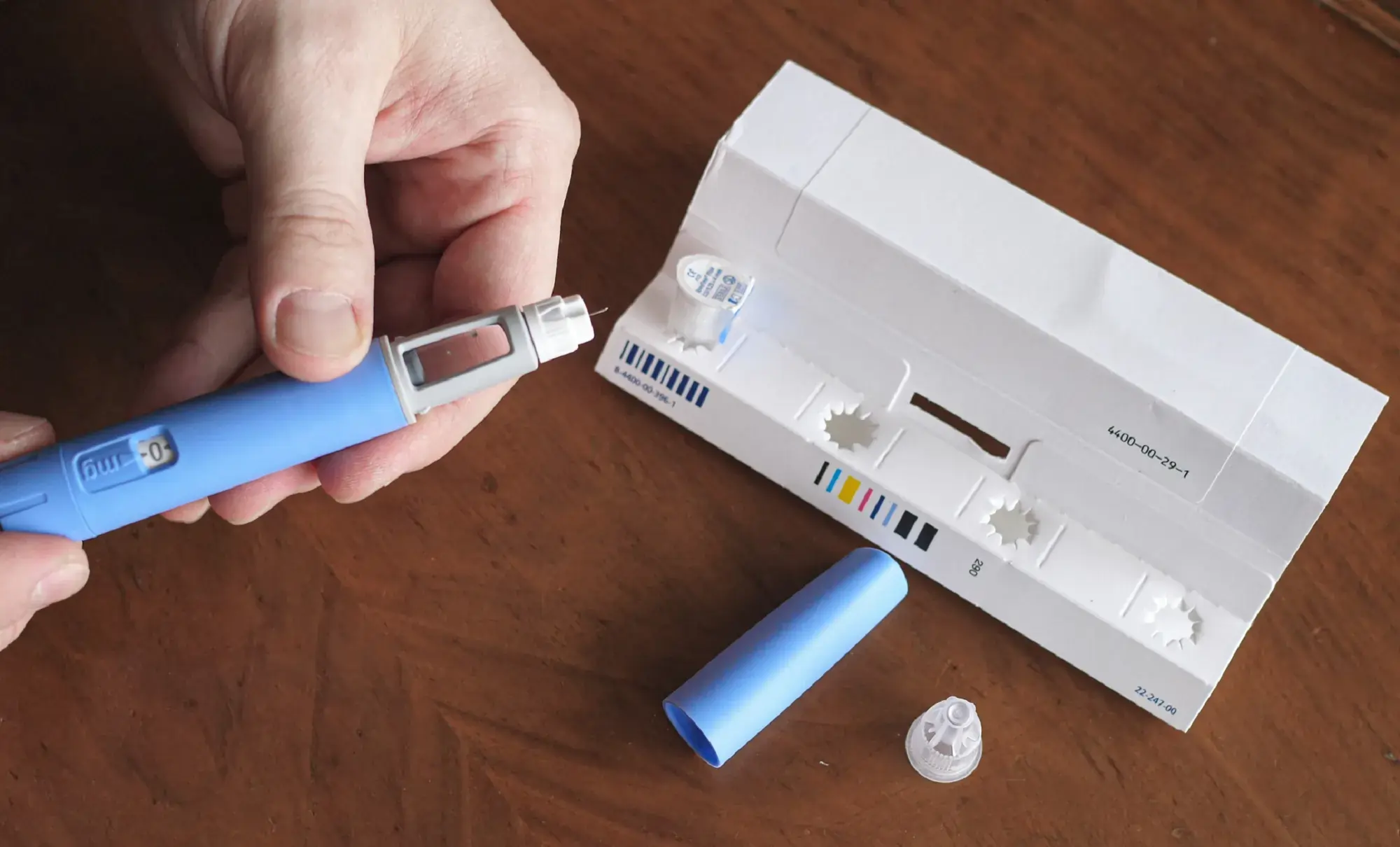
Achieving your goal weight with Wegovy is a significant milestone, but maintaining that progress requires careful attention to your maintenance dose. Understanding how to properly manage the Wegovy maintenance dose after goal weight is key to sustaining your results. As your body adjusts to its new weight, the dosage needs may change to ensure long-term success and prevent weight regain. It’s essential to work closely with your healthcare provider to find the right balance and to stay mindful of any adjustments needed along the way. Let’s dive into the content to learn more.
Understanding the Wegovy Maintenance Dose After Goal Weight Achievement
Once you reach your goal weight, understanding how to manage the maintenance dose of Wegovy becomes crucial for sustaining long-term results. This phase typically involves reducing the frequency of injections to maintain weight loss while preventing further loss or unwanted gain weight. The maintenance dose helps regulate your appetite, ensuring that you stay on track with your dietary and lifestyle changes. It’s important to follow your healthcare provider’s guidance to adjust the dosage gradually, as they will monitor your progress and make personalized recommendations based on how your body responds to the medication. Consistency with the prescribed dosage combined with a healthy routine can help maintain the benefits achieved during the weight loss phase.
The Importance of Gradual Dose Reduction: How to Avoid Potential Pitfalls
Gradually reducing the dosage after achieving your target weight is a crucial step in maintaining long-term success and avoiding setbacks. Abruptly stopping or significantly lowering the dose too quickly can lead to unpleasant side effects, such as an increase in hunger, cravings, or even regaining weight. By tapering the dose in small, controlled increments, your body has the chance to adjust to lower levels of the medication, minimizing these risks. Additionally, this gradual reduction helps your metabolism adapt, maintaining the progress you’ve made without overwhelming your system. It’s important to follow a structured plan, ideally under the guidance of a healthcare professional, to ensure a smooth transition and sustained results.
Adjusting Your Lifestyle to Support Maintenance: Tips Beyond Medication
After achieving your goal weight, it’s important to focus on maintaining your progress through a balanced lifestyle that goes beyond medication. Prioritize incorporating healthy eating habits that are sustainable, rather than relying on restrictive diets. Regular physical activity is essential for long-term weight maintenance, so finding an exercise routine that fits your interests and schedule can help you stay active. Additionally, managing stress and getting adequate sleep are crucial factors in supporting weight maintenance, as they can affect hunger levels and cravings. Building a support system, whether through friends, family, or a professional, can also provide motivation and guidance throughout your maintenance journey.
Monitoring Your Progress: How to Track Changes After Reaching Your Goal Weight
Once you have reached your goal weight, it’s crucial to continue monitoring your progress to ensure long-term success. Tracking changes can help you stay on course and make adjustments as needed. Regularly assess key factors such as your weight, body measurements, and overall health through tools like a scale, tape measure, or body composition tracker. Additionally, pay attention to how your clothes fit and how you feel physically and mentally. Regular check-ins with a healthcare provider can also be helpful to discuss any challenges or concerns. By keeping a close eye on these metrics, you can maintain your achievements and address any changes promptly.
Addressing Common Challenges During the Maintenance Phase
Maintaining a healthy weight after reaching your goal can be challenging, as many individuals face obstacles during the maintenance phase. One common issue is the struggle to balance caloric intake while avoiding weight gain, which requires a shift in mindset from weight loss to weight management. The key is to focus on portion control, regular physical activity, and mindful eating habits. Additionally, fluctuations in motivation or difficulty with maintaining consistency can lead to setbacks. It’s important to stay patient and develop a routine that works for your body, focusing on long-term habits rather than quick fixes. The health benefits of maintaining a steady weight are immense, as it can help reduce the risk of chronic diseases and improve overall well-being. Having a support system or professional guidance can be helpful to stay on track and overcome any challenges.
Nutrition Strategies to Complement Your Wegovy Maintenance Plan
Nutrition plays a crucial role in sustaining the results achieved during your weight loss journey, especially when transitioning into the maintenance phase. To complement your maintenance plan, focus on incorporating balanced meals that are rich in protein, fiber, and healthy fats. These nutrients help support muscle mass, promote satiety, and stabilize blood sugar levels. Opt for whole, nutrient-dense foods such as lean meats, legumes, whole grains, and plenty of vegetables. Managing portion sizes is also essential to prevent overeating, and keeping track of your caloric intake can help you maintain a steady weight. Staying hydrated and including small, nutritious snacks between meals can support metabolism and help control hunger, ensuring your maintenance plan is sustainable in the long run.
Exercise Adjustments for Long-Term Success After Reaching Your Goal Weight
Reaching your goal weight is a significant milestone, but maintaining it requires thoughtful exercise adjustments for long-term success. After achieving your target weight, it’s important to shift focus from intense weight loss routines to sustainable, enjoyable activities that promote overall health. Incorporating a balanced mix of strength training, cardiovascular exercises, and flexibility routines can help preserve muscle mass, improve metabolism, and support long-term weight management. Gradually decreasing the intensity of your workouts while introducing variety not only prevents burnout but also keeps your body engaged. Regular physical activity, paired with mindful eating habits, creates a steady foundation for maintaining your ideal weight in the long term.
Psychological Factors to Consider When Maintaining Weight Loss
Achieving a goal weight can bring a sense of accomplishment, but maintaining that weight involves navigating several psychological challenges. A key factor is the transition from a weight loss mindset to one focused on long-term sustainability, which can lead to feelings of loss or diminished motivation. Additionally, concerns about body image, societal pressures, and the fear of regaining weight may trigger anxiety or stress. To successfully maintain weight loss, it is essential to develop healthy, sustainable habits, address emotional triggers, and adopt a mindset that values progress over perfection, adjusting routines as needed to stay on course.
When to Seek Professional Guidance: Signs You Need Support with Maintenance
If you’re looking to cycling burn belly fat, it can be an effective and enjoyable way to maintain your weight. Reaching your goal weight is a significant achievement, but maintaining that weight can sometimes require extra guidance. If you find that your weight starts to fluctuate or you struggle with managing your eating habits and lifestyle changes, it may be time to seek professional support. Signs that you need assistance include emotional or physical cravings, difficulty sticking to your maintenance plan, or feeling overwhelmed by the need to sustain your results. Additionally, if you experience unexpected changes in energy levels, mood, or sleep patterns, it’s important to consult with a healthcare professional to ensure your maintenance plan is working effectively for you.
Celebrating Milestones: How to Stay Motivated on Your Maintenance Journey
Staying motivated during the maintenance phase involves embracing a balanced approach to health and well-being. Celebrate the progress you’ve made and recognize that each small milestone is a step toward long-term success. It’s important to focus on creating habits that promote lasting change, whether it’s through balanced eating, regular exercise, or mental well-being. Keep your goals in mind, stay connected with supportive communities, and prioritize consistency over perfection. With this mindset, the journey can remain fulfilling and sustainable, allowing you to thrive on your path to maintaining your goal weight.
Enjoyed the Read? Share It!









